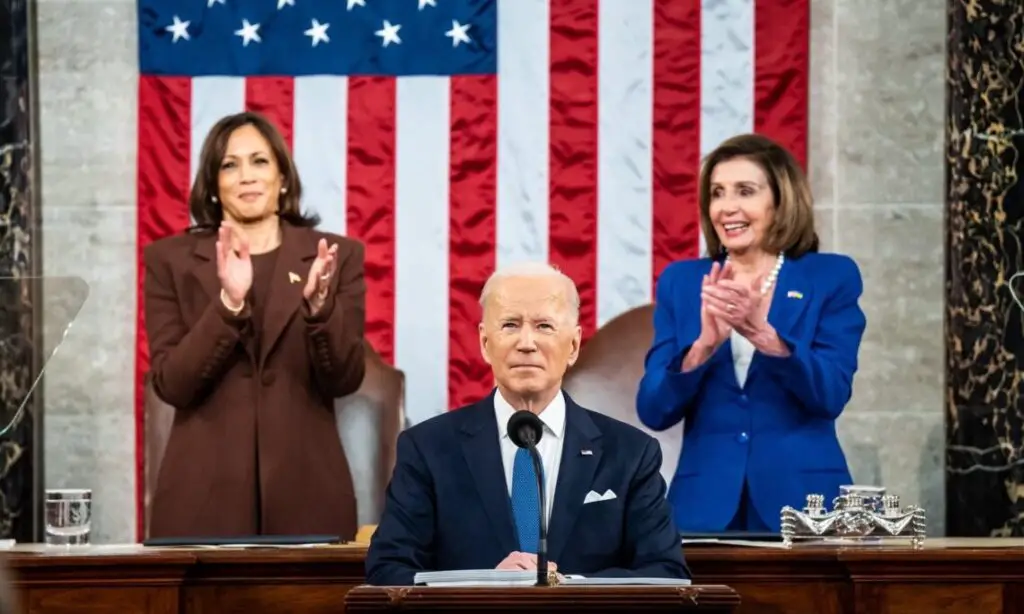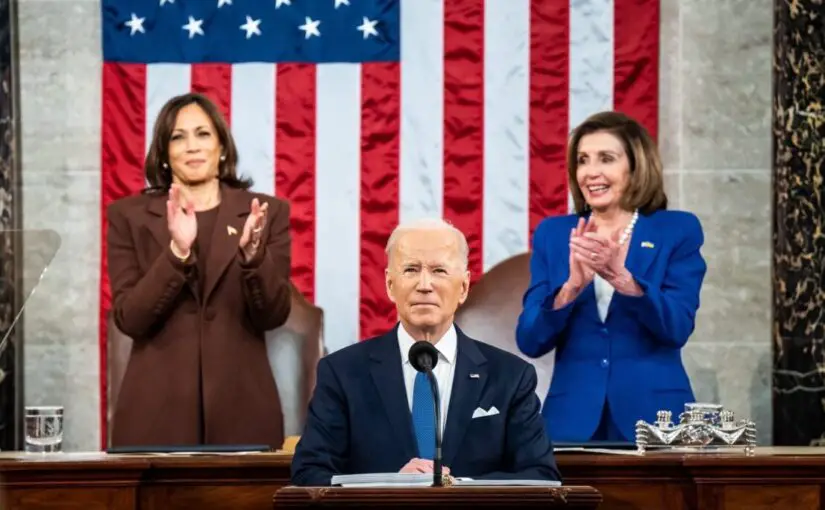
Vice President Kamala Harris (left), and Speaker of the House Nancy Pelosi (right) stand behind him.
Photo by sk.usembassy.gov
Affordable housing was only briefly mentioned in President Biden’s first State of the Union address last week, but it showed that the affordable housing crisis is a priority for the administration.
The first part of President Biden’s speech was devoted to the Russian invasion of Ukraine. But the second part of the address covered what the president wants to see done at home to help working class and low-income Americans.
The President talked about how families are struggling with rising costs, and that inflation was “robbing them of the gains they might otherwise feel.” He said his economic plan would lower inflation by helping working people. President Biden said:
“One way to fight inflation is to drive down wages and make Americans poorer. I have a better plan to fight inflation. Lower your costs, not your wages.”
Biden listed several proposals for improving the economy for working people. His plan would:
- Cut the cost of prescription drugs.
- Cut energy costs for families by combating climate change.
- Cut the cost of childcare.
He also said, “My plan doesn’t stop there. It also includes home and long-term care. More affordable housing.”
Rents have risen faster than inflation in recent years. More affordable housing means that millions of low-income families will no longer face crushing rent burdens.
Much of what the president was asking from Congress was included in the Build Back Better (BBB) Act. This sweeping legislation proposed major funding to support working people, address climate change, and shore up the social safety net. It also included $150 billion for affordable housing.
The Build Back Better Act proposed $25 billion for Section 8 Housing Choice Vouchers, the largest increase since the program began. It also had $65 billion to repair and upgrade public housing, plus $15 billion for the national Housing Trust Fund. Other federal programs that help build affordable housing would also get more funding.
Democrats are using a process called budget reconciliation to pass the spending measure by a simple majority in the Senate. Otherwise, it takes 60 votes under the Senate’s filibuster rule for a bill to reach the floor for a vote.
Reconciliation allows Democrats to pass spending bills without any Republican votes. It also means that they need every Democrat to support the final package. The Senate is split 50-50, with Vice President Kamala Harris casting the tie-breaking vote.
Moderate Democratic Senators Joe Manchin of West Virginia and Kirsten Sinema of Arizona disagreed with the overall price tag of the Build Back Better Act. With progress stalled, the White House and Democratic leadership in Congress are now trying to trim the cost of the bill.
Housing advocates are pushing to have affordable housing included in the scaled back reconciliation bill. If affordable housing funds are left out of the final reconciliation bill, there is not much hope that Congress will enact any major new housing measures this year.
We are now in an election year. Democrats need to pass something to show they are making good on their promise to help working families. It is a good sign that the president mentioned affordable housing in his speech. Keeping $150 billion for affordable housing in the reconciliation bill will be a historic commitment to making lives better for millions of low-income renters.

